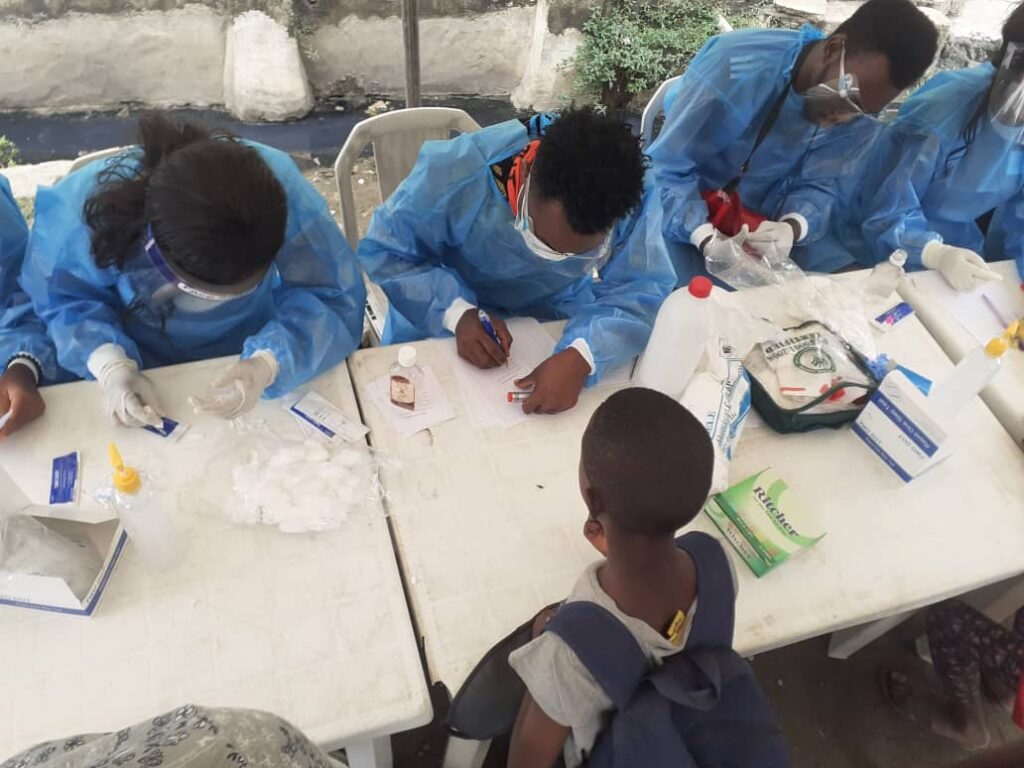The World Health Organisation (WHO) has revealed that between 10 and 20 per cent of adolescents globally experience mental health disorders such as depression and psychosis, often beginning between the ages of 11 and 18.
WHO Country Representative in Nigeria, Pavel Ursu while speaking at the 2025 International Adolescent Health Week in Abuja on Monday, said mental health challenges among young people remain underdiagnosed and untreated, leading to long-term health and social consequences.
Mr Ursu, who was represented by Mary Brantuo lamented low mental health literacy, stigma, and inadequate access to services, noting that only 20–30 per cent of Nigerian adolescents engage in regular physical activity.
He said improving adolescent health is essential to achieving the Sustainable Development Goals and ensuring Nigeria’s long-term development.
He called for greater investment, intersectoral collaboration, and community engagement to promote physical and mental health across the country.
Mr Ursu described the annual event as an opportunity to highlight the urgent need to invest in the physical and mental well-being of the country’s estimated 20 million adolescents.
Students call for stronger action
At the event, Peculiar Bassey, a student at Junior Secondary School, Karonmajigi, expressed gratitude to the government, teachers, and parents for their support but appealed for stronger action to address the silent struggles of young people.
Miss Bassey noted that many young people struggle with issues that are often left unspoken, such as stress, low self-esteem, peer pressure, and loneliness.
She said these challenges affect both the mind and body and must be addressed with empathy and support.
She urged parents, teachers, and leaders to listen to adolescents without judgement and to create safe spaces for open conversations about mental health and personal well-being.
Renewed commitment
Responding to adolescent concerns, the Coordinating Minister of Health and Social Welfare, Muhammad Pate, reaffirmed the government’s commitment to improving adolescent health outcomes nationwide.
Represented by the Ministry’s Director of Human Resource Management, Tetshoma Dafeta, Mr Pate said Nigeria’s future stability depends on how well the country nurtures its adolescents, who make up about 23 per cent of the population.
He listed key efforts, including the creation of an Adolescent and School Health Branch, a dedicated budget line for adolescent health, and the implementation of the National Adolescent Health Policy and related guidelines.
Mr Pate urged states yet to establish such provisions to do so and called on policymakers to allocate portions of key ministries’ budgets, including Education, Youth, and Women Affairs, to adolescent development.
He also emphasised the need for open discussions on mental health, improved counselling services, and stronger collaboration among schools, families, and communities.
Inclusion and collaboration
At the event, the Society for Family Health (SFH) called for greater prioritisation of adolescent-friendly services to ensure equitable access to healthcare, especially for young girls.
SFH’s Country Manager for Partnerships and Collaboration, Jennifer Adebambi, said the organisation’s Adolescents 360 (A360) project has reached over one million girls aged 15–19 with family planning services, 175,000 with antenatal and safe delivery care, and 500,000 with vocational and economic empowerment programmes.
Ms Adebambi urged the Federal Ministry of Health to integrate adolescent health into the Basic Health Care Provision Fund (BHCPF), adding that SFH remains committed to supporting universal health coverage and youth inclusion.
Investing in Nigeria’s future
Also speaking, the Permanent Secretary of the Federal Ministry of Health and Social Welfare, Daju Kachollom, described adolescents as the foundation of Nigeria’s social and economic future.
Represented by the Director of Family Health, Binyerem Ukaire, she reaffirmed the Ministry’s commitment to expanding youth-friendly health services, particularly in hard-to-reach areas.
READ ALSO: Global health leaders seek stronger health agencies to prevent future pandemics
Ms Kachollom highlighted the government’s Reproductive, Maternal, Newborn, Child, Adolescent, and Elderly Health plus Nutrition (RMNCAEH+N) platform as a multi-sectoral effort to coordinate adolescent health and development.
“Take care of your body, nurture your mind, and stay positive,” she told the youth, stressing that investing in adolescents is investing in the nation’s future.
About the event
The week-long event, themed “Thriving Inside and Out”, was organised by the Federal Ministry of Health and Social Welfare in collaboration with development partners to promote inclusive health and education systems for adolescents.
The theme emphasised the interconnection between physical and mental health, encouraging young people to build resilience, adopt healthy lifestyles, and develop emotional balance.
Read the full article here


